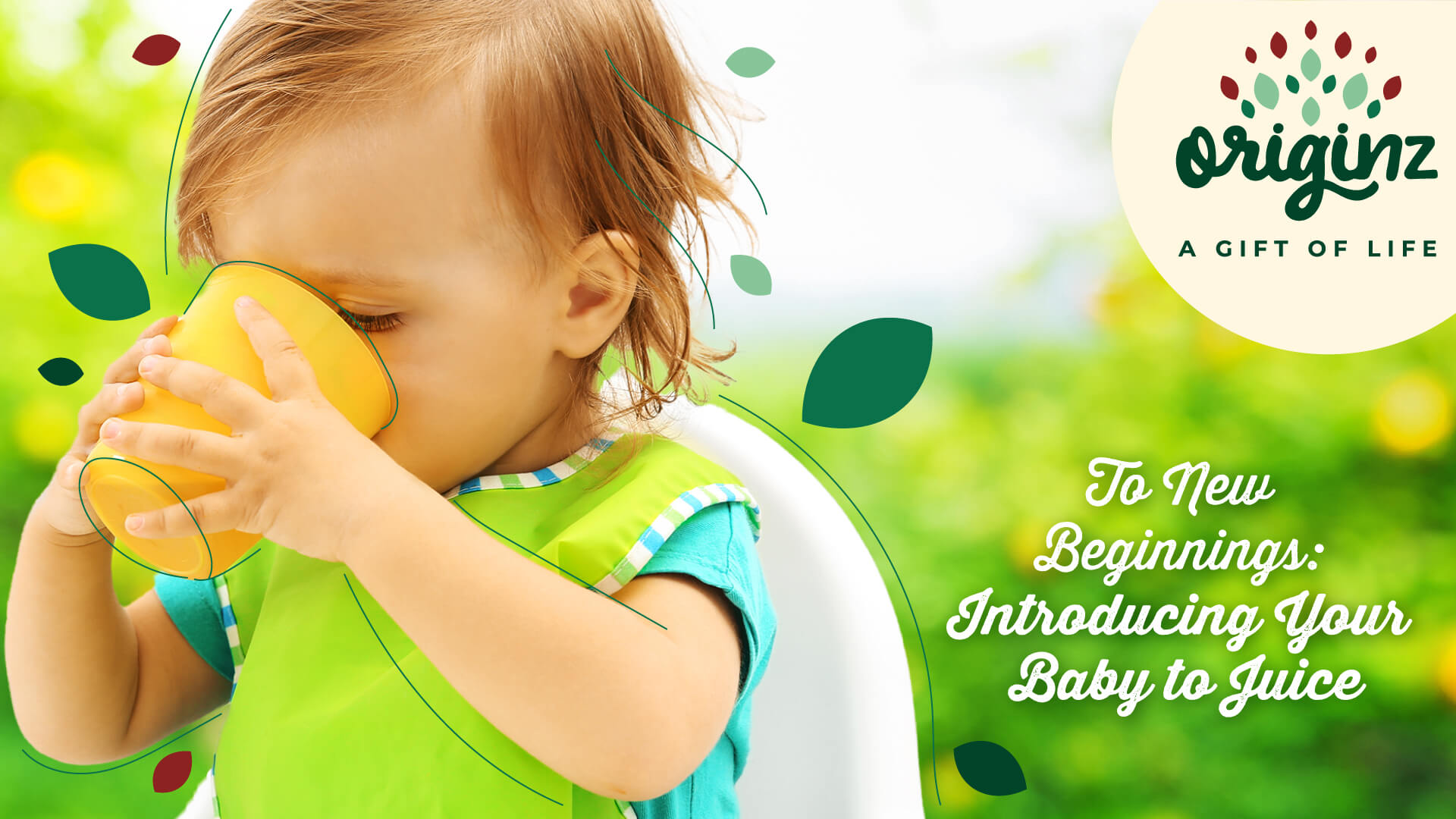
To New Beginnings: Introducing Your Baby to Juice
Introducing juice into your little one’s diet is a significant milestone, a first step towards eating solid food. However, it is important that you introduce the right juice at the right time, to avoid potential risks to your baby’s health. Thankfully, paediatricians have researched the effects of juice on babies, and come up with guidelines for adding juice to a baby’s diet. Here are the main things to look out for when introducing your baby to juice.
The American Academy of Pediatrics (AAP) recommends that babies should not be given juice before the age of 12 months. By this time, their digestive systems are developed enough to process some kinds of juice in small amounts, but not all. When choosing juice for your baby, choose 100% pure and pasteurised juices with no added sugars or preservatives. Avoid citrus juices and exotic juices to begin with, as they can be harsh on your baby’s tummy. Opt instead for milder juices like apple, pear, and white grape.
You can also dilute juices to make them easier for your baby to digest. A normal ratio is about one part juice to three parts water, though this can even out as your child gets used to juice. It is recommended to offer juice in small portions of about 2–4 ounces (60–120ml) per day. Serve the juice in a cup rather than a bottle or sippy cup, and let the serving coincide with meal or snack times to stop them drinking too much.
Another important consideration is the health of your child’s teeth and gums. Even juices with no added sugars are still sometimes high in natural sugars, which can contribute to tooth decay and cavities. These can be very painful for the young child, especially since their teeth may only have just come in. Make sure to keep up good oral hygiene by regularly cleaning your baby’s gums and teeth. For more advice, consult your paediatrician or dentist.
Introducing juice to your baby can be a great first step to get them to explore the many flavours the world has to offer. However, you can have too much of a good thing, so make sure to add juice in moderation and as a complement to meals to keep your baby healthy. If you have concerns about your baby’s juice intake, or the effect of juice on their oral hygiene, it is best to ask a medical professional for advice.
Latest Blogs

Maintaining Healthy Habits After Ramadan
Have Ramadan healthy meals after Ramadan and maintain healthy food habits and implement them in your daily lives. Read more about healthy food habits.

Authentic Middle Eastern Iftar Meals to Prepare This Ramadan
Prepare some authentic middle eastern iftar meals this Ramadan. Look for fresh Ramadan food ideas and make your day memorable with these dishes. Check them out.

Ramadan Dishes to Cure Fasting Fatigue
Don’t worry about fasting fatigue anymore as we have listed some best Ramadan dishes and easy iftar meals to support your fasting journey. Check them out.

Eid-al-Fitr Feast: Delicious Recipes to Celebrate the End of Ramadan
Celebrate the end of Ramadan with delicious recipes on the eve of Eid ul Fitr. Read more about the traditional Ramadan recipes and make them easily.